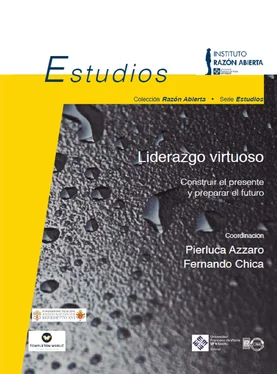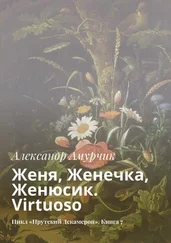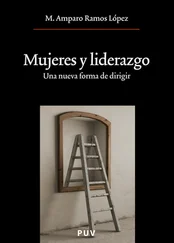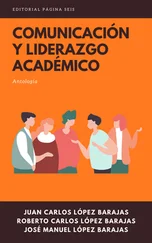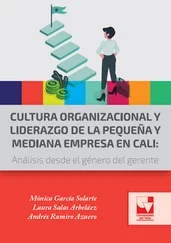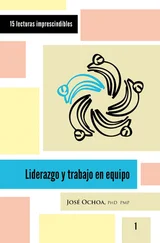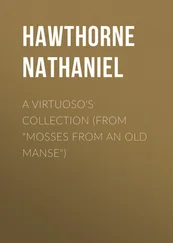La humanidad necesita una profunda renovación cultural; necesita redescubrir esas virtudes que constituyen el fundamento sólido sobre el cual construir un futuro mejor para todos. Las situaciones de crisis por las que actualmente está atravesando —ya sean de carácter económico, alimentario, ambiental o social— son también, en el fondo, crisis morales relacionadas entre sí. Estas obligan a replantear el camino común de los hombres. Obligan, en particular, a un modo de vivir caracterizado por la sobriedad y la solidaridad, con nuevas reglas y formas de compromiso, apoyándose con confianza y valentía en las experiencias positivas que ya se han realizado y rechazando con decisión las negativas. Sólo de este modo la crisis actual se convierte en una oportunidad de discernimiento y de nuevas proyecciones.
Humanity needs a profound cultural renewal; it needs to rediscover those virtues which can serve as the solid basis for building a brighter future for all. Our present crises – be they economic, food-related, environmental or social – are ultimately also moral crises, and all of them are interrelated. They require us to rethink the path which we are travelling together. Specifically, they call for a lifestyle marked by sobriety and solidarity, with new rules and forms of engagement, one which focuses confidently and courageously on strategies that actually work, while decisively rejecting those that have failed. Only in this way can the current crisis become an opportunity for discernment and new strategic planning.
Benedicto XVI
Liderazgo virtuoso
Construir el presente y preparar el futuro
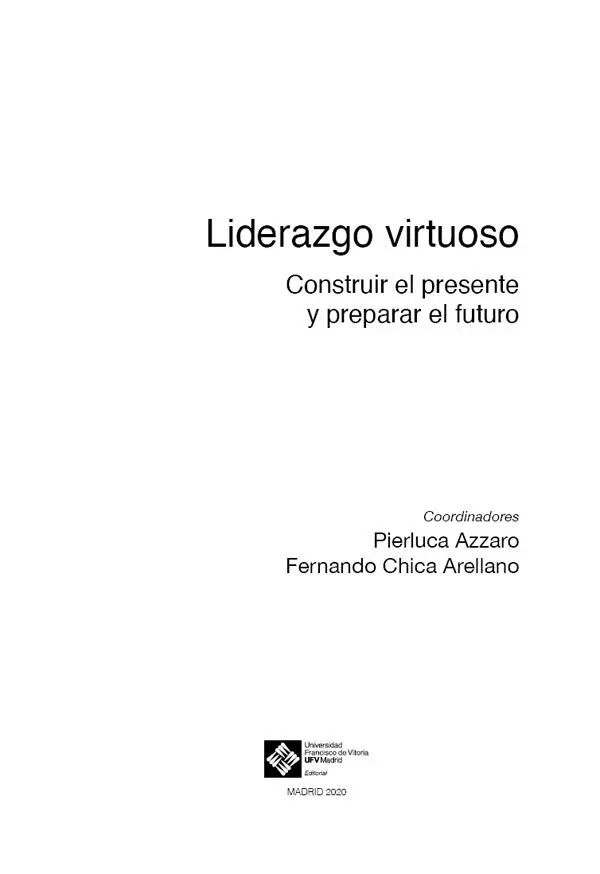
Colección Razón Abierta serie Estudios
Director
Leopoldo José López Prieto (Universidad Francisco de Vitoria)
Comité Científico Asesor
Daniel Sada (Universidad Francisco de Vitoria)
Federico Lombardi S. J. (Fundación Joseph Ratzinger)
Stefano Zamagni (Fundación Joseph Ratzinger)
Paolo Benanti (Pontificia Universidad Gregoriana)
Andrew Briggs (Universidad de Oxford)
Rafael Vicuña (Pontificia Universidad Católica de Chile)
Javier Prades (Universidad San Dámaso)
Este proyecto ha sido posible gracias al apoyo de la subvención de Templeton World Charity Foundation, Inc. Las opiniones expresadas en esta publicación pertenecen a los autores y no reflejan necesariamente las de Templeton World Charity Foundation, Inc.
This project has been made possible through the support of a grant from the Templeton World Charity Foundation, Inc. The opinions expressed in this publication are those of the authors and do not necessarily reflect the views of the Templeton World Charity Foundation, Inc .
© 2020 Pierluca Azzaro y Fernando Chica Arellano de la coordinación
© 2020 Los autores de sus textos
© 2020 Editorial UFV
Universidad Francisco de Vitoria
editorial@ufv.es// www.editorialufv.es
Primera edición: diciembre de 2020
ISBN edición impresa: 978-84-18360-57-2
ISBN edición digital: 978-84-18360-58-9
ISBN edición ebook: 978-84-18360-68-8
Depósito legal: M-29189-2020
Preimpresión: MCF TEXTOS, S. A.
Impresión: Producciones digitales Pulmen, S. L. L.
Queda prohibida, salvo excepción prevista en la ley, cualquier forma de reproducción, distribución, comunicación pública y transformación de esta obra sin contar con la autorización de los titulares de la propiedad intelectual. La infracción de los derechos mencionados puede ser constitutiva de delito contra la propiedad intelectual (arts. 270 y ss. Código Penal). El Centro Español de Derechos Reprográficos ( www.cedro.org) vela por el respeto de los citados derechos.
 |
Esta editorial es miembro de UNE, lo que garantiza la difusión y comercialización de sus publicaciones a nivel nacional e internacional. |
Este libro puede incluir enlaces a sitios web gestionados por terceros y ajenos a EDITORIAL UFV que se incluyen solo con finalidad informativa. Las referencias se proporcionan en el estado en que se encuentran en el momento de la consulta de los autores, sin garantías ni responsabilidad alguna, expresas o implícitas, sobre la información que se proporcione en ellas.
Impreso en España - Printed in Spain
ÍNDICE
Virtuous Leadership and Christian Humanism: A Preliminary Thought
Pierluca Azzaro
Introducción
Federico Lombardi
I. La Voz de la Iglesia
Le sfide della regione panamazzonica: Cooperazione necessaria tra gli Organismi internazionali e la Chiesa cattolica e leadership etica
Pedro Ricardo Barreto Jimeno
El liderazgo ético a la luz del magisterio del papa Francisco
Francesc Torralba
Solidarity and Development: Toward an Ethics of the Common Good
Stephan Kampowski
Il contributo del Magistero dei papi all’opera delle Organizzazioni internazionali
Fernando Chica Arellano
II. La voz de las instituciones internacionales
Laudato Si y los ODS 2030: Una oportunidad para relanzar el multilateralismo y salvar el planeta
René Castro
Building the Present and Preparing the Future with an Ethical Leadership
Maria Helena Semedo
L’impegno dell’IFAD per i popoli indigeni
Mattia Prayer Galletti
III. La voz de los expertos: agricultura, economía, relaciones internacionales
Ética y sostenibilidad: Quo vadis, Terra?
José T. Esquinas Alcázar
Agroecologia, foodtech e sicurezza alimentare
Stefano Zamagni
Ethics at the Service of Development
Máximo Torero
Il presente e il futuro dei rapporti internazionali con una leadership etica
Vincenzo Buonomo
Empowerment
Pietro Sebastiani
Los autores
VIRTUOUS LEADERSHIP AND CHRISTIAN HUMANISM: A PRELIMINARY THOUGHT
Pierluca Azzaro
‘Humanity needs a profound cultural renewal; it needs to rediscover those virtues which can serve as the solid basis for building a brighter future for all. Our present crises – be they economic, food-related, environmental or social – are ultimately also moral crises, and all of them are interrelated. They require us to rethink the path which we are travelling together. Specifically, they call for a lifestyle marked by sobriety and solidarity, with new rules and forms of engagement, one which focuses confidently and courageously on strategies that actually work, while decisively rejecting those that have failed. Only in this way can the current crisis become an opportunity for discernment and new strategic planning’. 1
Ten years ago, Benedict XVI strongly exhorted humanity to rediscover the ethics of reasonable and shared virtue, on the basis of which the future could be planned anew. He did this specifically in his Message for the World Day of Peace, which that year he dedicated to respect and care for the creation and which had the significant title ‘If you Want to Cultivate Peace, Protect the Creation’. Indeed, the very close connection that exists between the protection of the creation and the safeguarding of justice and peace is a common theme that pervades the Magisterium of the Popes at the end of the twentieth century and the beginning of the twenty-first century. Benedict XVI himself, emphasised this: ‘Twenty years ago, Pope John Paul devoted his Message for the World Day of Peace to the theme:
Читать дальше
